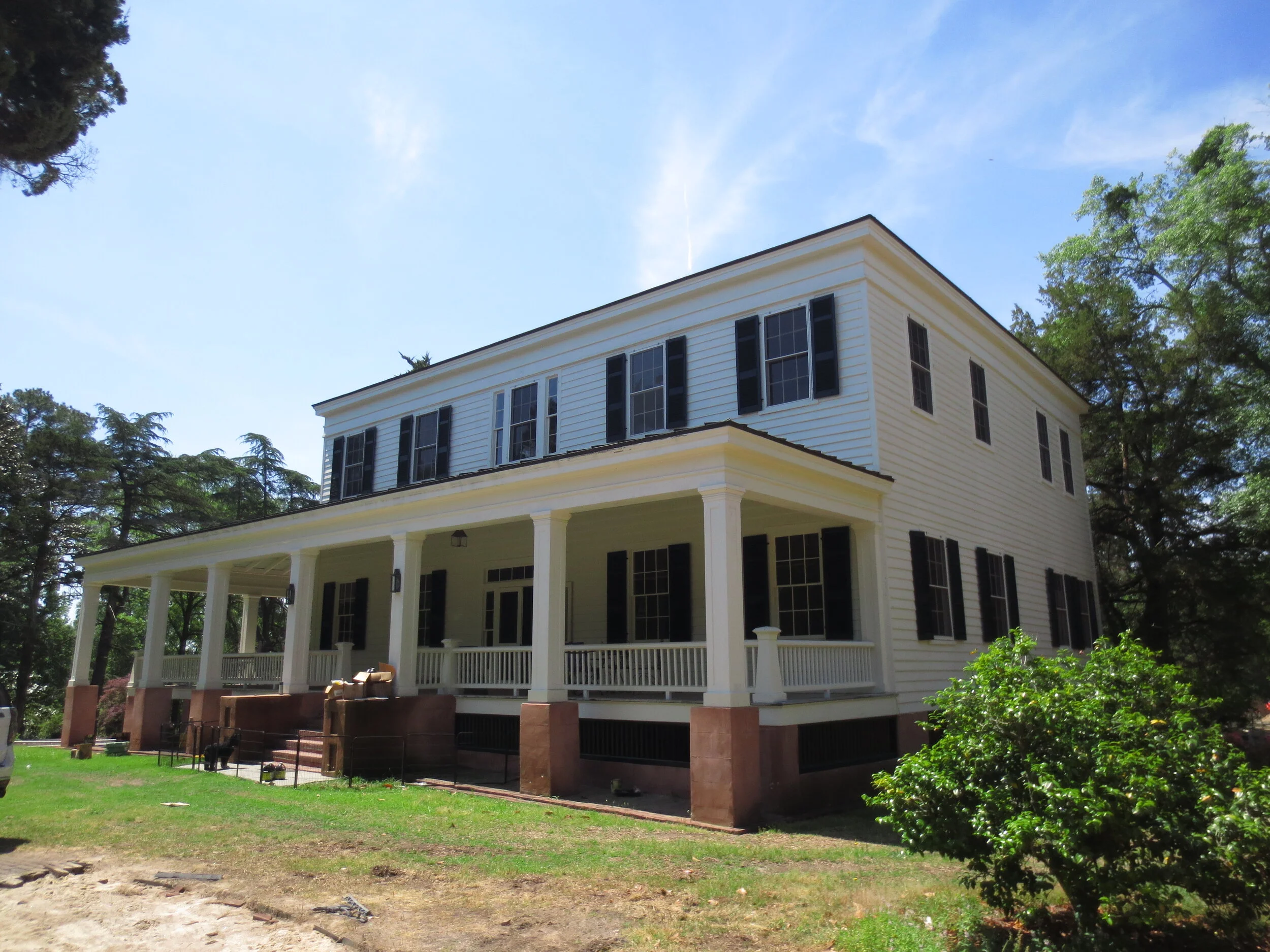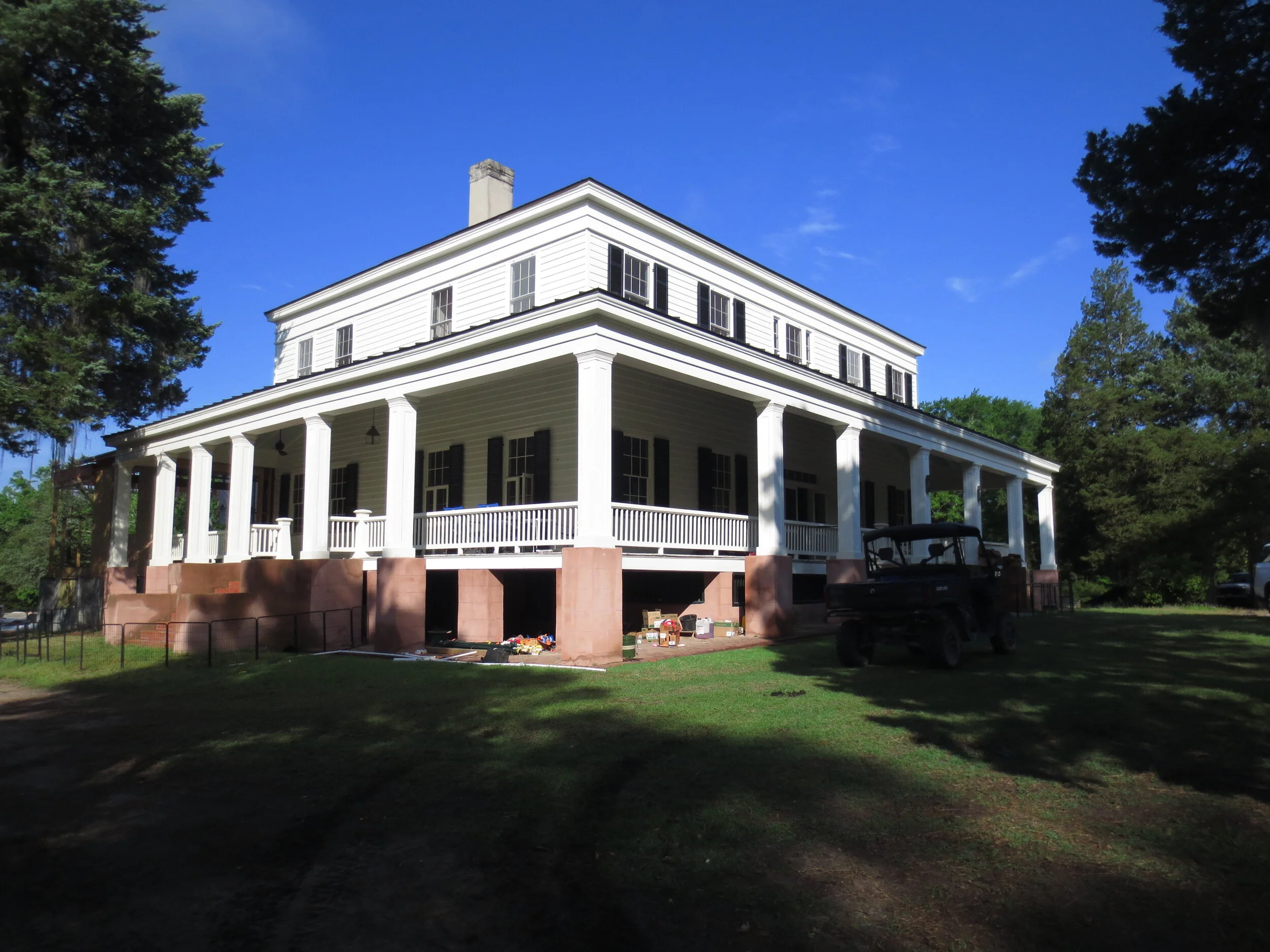Plane Hill, Kershaw County, SC
Plane Hill is significant at the local level under a long list of criteria covering its extremely varied and complicated history between 1817—when the house was built—and 1947—when the Charlotte Thompson School ceased operation in the main house. First, Plane Hill is significant under Criterion A for its role as a rural, modern, consolidated school in Kershaw County from 1923-1947, when its conversion to a school helped the Swift Creek community heal from a devastating tragedy that had claimed many of its young schoolchildren.
Plane Hill is also significant at the local level under Criterion B for its association with four individuals of great importance to South Carolina, Kershaw County, and Camden-area history. The first of these individuals, Stephen Decatur Miller, was a major figure in South Carolina politics, serving in the South Carolina Senate, US House of Representatives, and the US Senate, as well as one term as South Carolina Governor. His vituperative arguments for states’ rights are generally regarded as the foundation for later nullification arguments that became the basis for southern secession. He was at the pinnacle of his political influence while living at Plane Hill (1828-1835). The second individual, Mary Boykin Miller Chesnut, was Miller’s eldest daughter and spent the formative years of her childhood (1828-1835) at Plane Hill, which was effectively the only childhood home she ever really knew. While living there, she formed an intense interest in southern politics and sought at an early age to record her family’s history. She went on to spend the last third of her life editing her Civil War-era diary, which is now considered a literary classic. The third individual is Alexander Hamilton Boykin, who acquired Plane Hill at the age of 20 and spent most of his adult life living there when not in military service for the Confederacy as the commander of Boykin’s Rangers, a privately mustered regiment accepted into service early in the war. Boykin was a prominent landholder in Kershaw County and served ten years in the US House of Representatives, as well as several years in the state legislature. The fourth individual is Charlotte de Macklot Thompson, a prominent socialite and philanthropist who used Plane Hill as her winter residence from 1909 to 1923, when she sold the property to the local school district for use as a consolidated school to help modernize local, rural schools. Her largesse was also principally responsible for the building of a new Catholic church at Camden in 1914, during the period of her residence in the vicinity.
Finally, Plane Hill is significant at the local level under Criterion C as an outstanding surviving example of mid-nineteenth century, Greek Revival architecture in southern Kershaw County, as well as for its impressive terraced gardens—generally regarded as the finest in the region and often referred to as The Terraces—that are located to the southeast of the main house at Plane Hill. Both the house and the gardens retain an impressive degree of integrity, despite the multiple owners and varied uses of the property from 1817 to the present.
Plane Hill was listed in the National Register of Historic Places on September 26, 2022.



